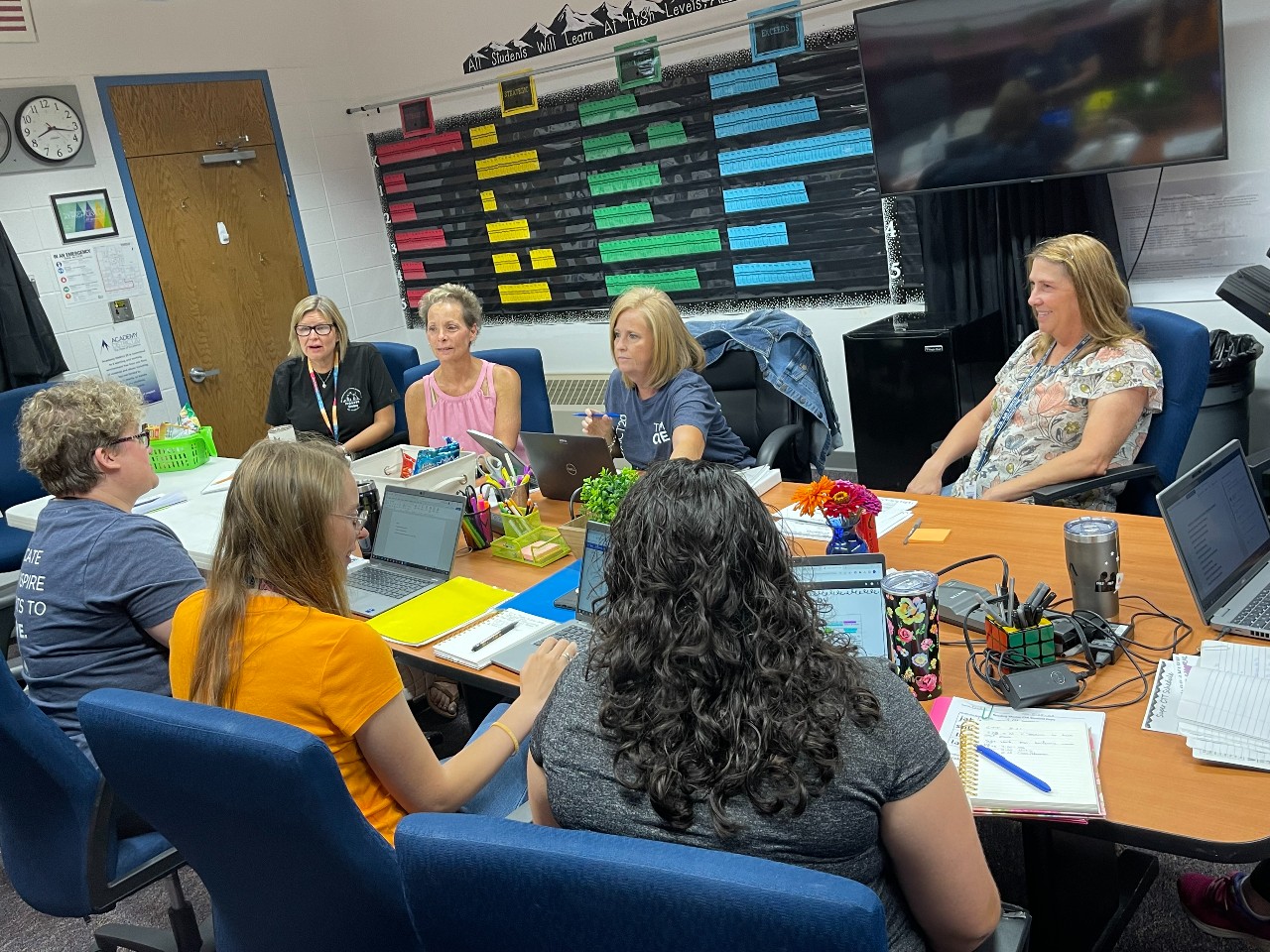Overview
In Academy District 20 (D20) school staff come together during scheduled late-start work time called Professional Learning Communities (PLCs). During this time our educators use a team-based approach to focus on student learning, instruction, and achievement. This structured time is guided by clear objectives and metrics, and ultimately leads to increased academic success and professional growth.
PLC Guiding Questions
When educators gather in a PLC, they utilize four questions to guide their process:
What do we want students to learn and be able to do?
How will we know when they have learned it?
How will we respond when students do not learn?
How will we respond when students already know it?
PLC Outcomes
During PLCs collaborative teams work together to:
Prioritize standards and develop curriculum maps and pacing guides.
Plan for instruction that meets the needs of all students.
Create high quality common assessments based on prioritized standards.
Respond to student data from common assessments, with a focus on improving student results and teacher practice.
Additional Collaboration Time
In addition to the designated late start PLC time, the important work of teacher collaboration occurs at various times throughout a typical week in our schools. The late starts provide additional, concentrated time for teacher teams to go far deeper into this important work while also allotting time to meet with special educators, special service providers, interventionists, teachers from other grade levels, and even teachers from other schools.
PLC Examples
PLCs are built on three foundational pillars:
Focus on learning
Collaborative culture
Results
For example:
Third grade teachers come together to use their PLC time to look closely at the state standards and the district’s prioritized list of those standards. They map their goals and instruction pace for each unit of study. They also plan instructional strategies together and design high quality common assessments to gauge student learning.
When teachers are together they analyze data from common assessments, identify the most impactful instructional strategies, and what students need. This allows students to be successful, whether they are receiving intervention or enrichment.
During this PLC, the teacher team also analyzes the impact of those interventions and enrichments to ensure students continually improve.
PLCs Successes
Our intentional focus on continuously improving teaching and learning through our PLC process has been integral to several district successes.
We have been Accredited with Distinction for 15 straight years, one of only four districts in the state to achieve distinction every year since ratings launched in 2008.
Five D20 schools ranked in Colorado's top 10 schools of 2023, based on percentage of points earned under the state’s school performance framework.
Result in steadily improving results for Math and English Language Arts (ELA) on standardized assessments, including achievement and growth.
PLCs improve graduation rates for all students, including some of the highest rates for disaggregated student subgroups in Colorado.
